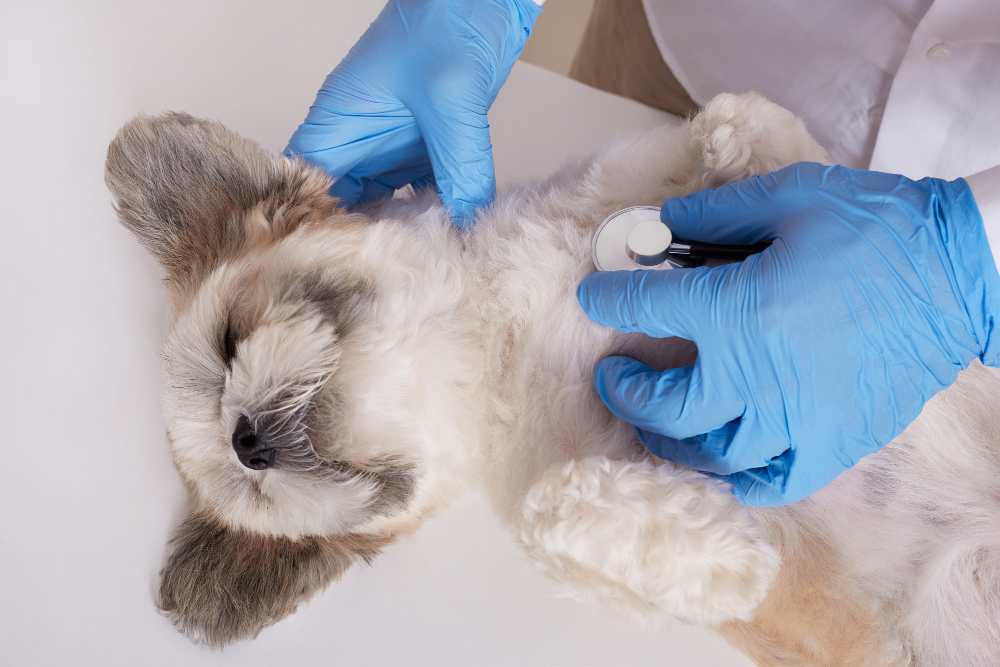Safe Sweet Treats for Pets: What You Can (and Should) Share | Express Vets Cumming

As pet parents, it's natural to want to spoil our four-legged companions—especially when we're enjoying something sweet ourselves. But when it comes to sharing sugary treats, caution is key. Many human sweets can be harmful or even toxic to pets, particularly when it comes to ingredients like chocolate, artificial sweeteners, and high-fat content. However, there are some safe and satisfying sweet options you can offer your pet, as long as they’re given in moderation and with a thoughtful approach.
First and foremost, it’s important to understand that dogs and cats have different dietary needs than humans. While our cravings for sugar can be strong, pets don’t process sweets the same way. In fact, many traditional treats—like candies, cakes, and cookies—contain ingredients that are not only unhealthy but dangerous. Xylitol, a common artificial sweetener found in sugar-free products, is highly toxic to dogs and can cause a sudden drop in blood sugar, seizures, or liver failure. Even natural sugar can lead to weight gain, dental issues, and blood sugar spikes when given too often.
That said, not all sweet flavors are off-limits. There are natural, pet-safe treats that can satisfy your pet’s taste buds while keeping their health in check. For dogs, small portions of fresh fruits like apples (without seeds), blueberries, and bananas make excellent low-calorie rewards. These fruits contain natural sugars along with fiber and essential nutrients that can benefit your pet’s digestion and immune system.
Cats, on the other hand, are obligate carnivores and don’t have a strong sweet tooth. Still, some cats enjoy the occasional taste of melon or pumpkin, which can be offered in tiny amounts. Plain cooked sweet potato is another favorite among both dogs and cats and provides a mild sweetness along with digestive support. It’s best to avoid adding any sugar, butter, or seasoning when preparing sweet vegetables or fruits for pets.
Frozen treats can also be a fun way to give your pet a sweet experience. You can freeze small bits of banana or make homemade pet popsicles using unsweetened yogurt and pet-safe fruit purees. Just be sure the yogurt contains no xylitol and that dairy agrees with your pet’s stomach, as some pets are lactose intolerant. For an extra layer of enrichment, stuff a hollow toy with these mixtures and freeze it—it turns treat time into a fun and rewarding activity.
Of course, moderation is essential. Even the safest sweet treats should only make up a small portion of your pet’s diet. Overindulgence can lead to obesity, diabetes, and other health complications. When introducing a new food, always observe your pet for any signs of digestive upset or allergic reactions.
At Express Vets Cumming, we encourage pet owners to think of treats as occasional rewards rather than everyday snacks. With the right choices and portion sizes, sweet treats can be a healthy part of your pet’s routine. If you're ever unsure whether a food is safe for your dog or cat, your veterinarian is your best source of guidance.
Pets bring joy to our lives every day, and it’s only natural that we want to return the favor. By choosing safe, natural sweets and avoiding harmful ingredients, you can treat your pet with love—without putting their health at risk.
Have questions about your pet’s diet or treat choices? Schedule a visit with Express Vets Cumming today at (470) 239-7672 or visit us at 5485 Bethelview Rd. Suite 440,Cumming, GA 30040 and let our friendly team help you build a nutrition plan that keeps your furry friend happy and healthy.



















